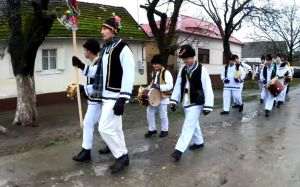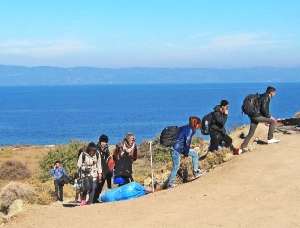The Save the Children Romania organization announces the 27th edition of the Summer Kindergartens, with an innovative concept of the Mobile School, which will reach isolated communities affected by severe poverty. In the 2022-2023 school year, among the 7,471 public kindergartens, 1,616 operated with an extended schedule, only 310 being in rural areas, in the context of the increased risk of poverty and social exclusion. The Save the Children Romania organization announces the opening of summer kindergartens and remedial education programs, which will include over 1,500 children. Also, the organization's Mobile School will reach children with little or no access to education, who live in isolated areas or in communities deeply affected by poverty. In the 2022-2023 school year, only 74.8% of preschool children were enrolled in kindergarten, down from 75.6% in the previous year and well below the EU average of 93.1% (1). For the coming school year, official sources estimate 665,000 places in kindergartens, calculated to include all children between the ages of 4 and 6 and over 70% of those under 4 (0-4, according to the background note). Non-attendance of school affects an increasing proportion of Romanian children: almost 16% of children of secondary school age were out of school in the 2022-2023 school year, while over a quarter of those of high school age (25, 03%) were in the same situation. Romania registers a percentage of 16.6% of young people between 18-24 years who have completed secondary school education at most, the highest percentage in the last 6 years. The impact of the program: cognitive development and knowledge of the world: from 15% upon entering the program to 60% upon completion of the program; the development of language, communication and the premises of reading and writing: 10% upon entering the program, 55% upon completion of the program; 94% of the children were enrolled in mainstream education, the remaining 6% are being monitored and will be enrolled in the next school year.
The Save the Children organization has repeatedly drawn attention to the impact that, in Romania, the socio-economic situation of the family has on the school results of the children. The most recent PISA results available placed Romania among the countries that register a strong connection between the socioeconomic status of students and their performances. "Access to early education is a fundamental condition for the child's right to a good future to be a real one. The discrimination that poverty induces has devastating long-term effects for the child and, at the same time, huge costs for the whole society", Gabriela declared Alexandrescu, Executive President of Save the Children Romania. Most of the beneficiary families of the Save the Children Romania programs (51.58%) have an income of less than 400 lei/family member, 32.48% of families declare an income of less than 600 lei/family member and only 15.9 % states that the income per family member exceeds 600 lei. The families included in the survey declared that they had to give up certain expenses, as follows: 71% gave up spending on clothing and shoes; 35% gave up expenses related to extracurricular activities; 12% of families gave up buying games and toys; 24% of vulnerable families decreased the budget allocated to food. Public expenses for Romanian children's education are the lowest in the European Union, and parents are forced to cover the system's shortcomings.


















































